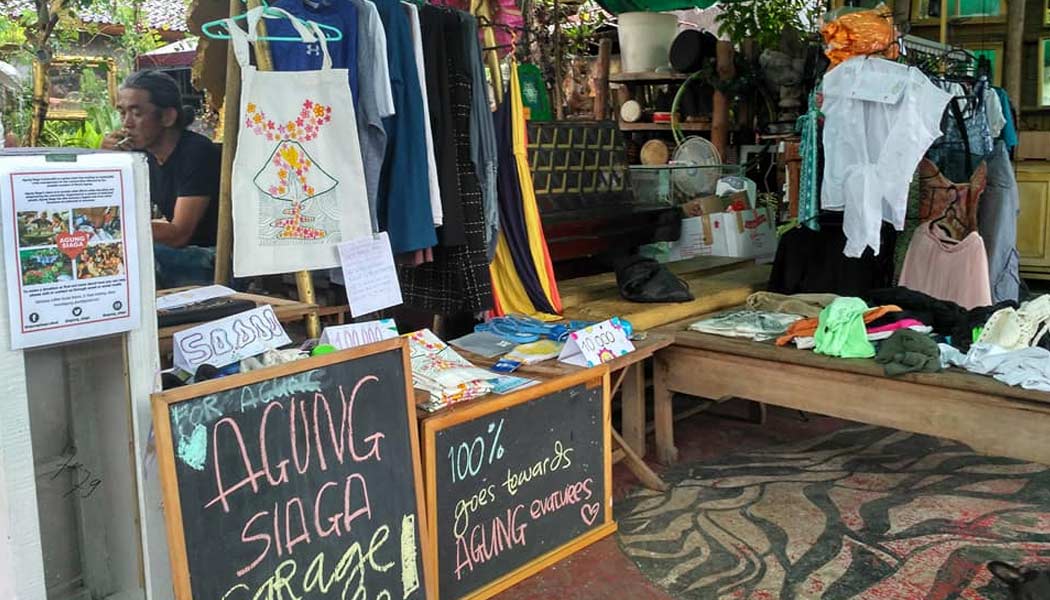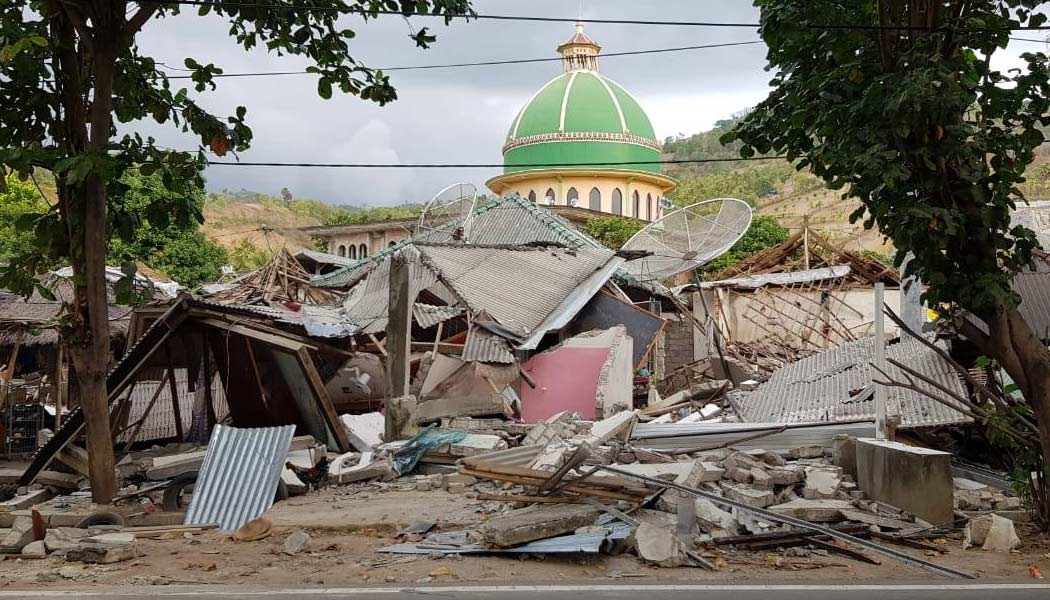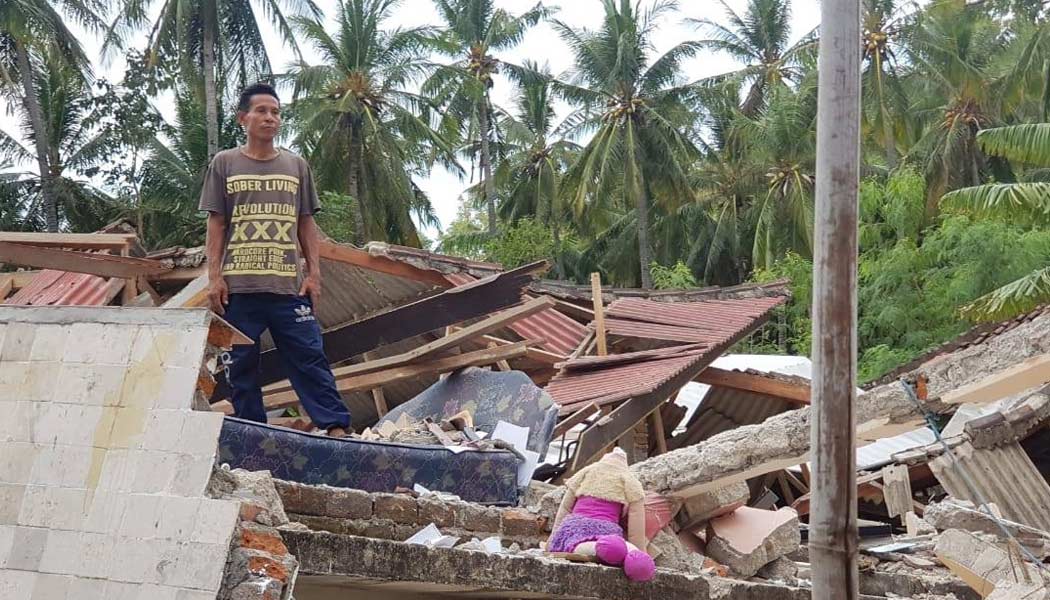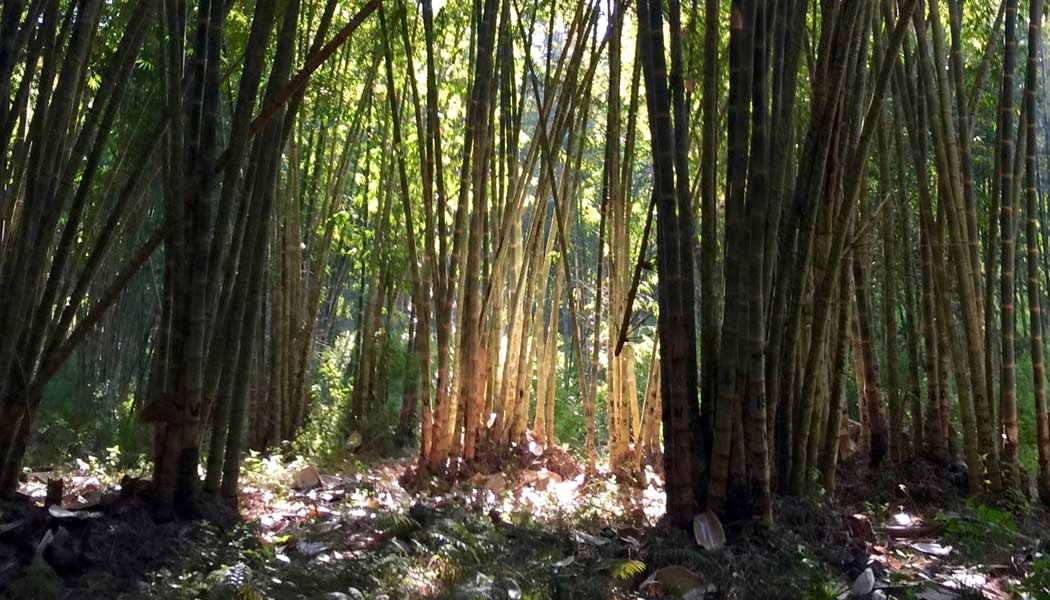Stephanie Mee on how to help … and how to stay grateful in Bali.
AGUNG SIAGA
If you were in Bali in the end of July or early August, then you no doubt felt the rolling earthquakes and aftershocks that wreaked havoc on Lombok. At the time of writing, thousands of people in Lombok have lost their homes and more than 400 people have died. Local Bali relief group Agung Siaga were quick to respond, and currently have volunteers working on the island to assess damage, help rebuild, and facilitate transportation and distribution of supplies. They need all the help they can get.

Agung Siaga was formed shortly after Mount Agung erupted in September. This collective of various organisations, business owners, and individuals began with the goals of providing relief to villagers who had been evacuated from the mountain, sharing logistics about evacuee camps, and educating and empowering communities about volcano safety. When the first earthquake hit Lombok, they shifted their focus, and already had volunteers on the ground when the second 6.2 magnitude earthquake hit.

Much like they did in Bali with the Mount Agung disaster, this tireless team is assessing needs and the potential for effective support on Lombok, as well as building relationships with communities and organisations, helping to clear rubble, rebuild homes, and distribute essentials such as food, water, clean clothing, sleeping mats, medicines, and tarps. They are also raising awareness about Lombok’s overwhelming need for support through their social media networks.

Agung Siaga is a non-profit organisation that runs entirely on volunteers, so fundraising is crucial to their efforts. Donations of any kind are much appreciated, but cash donations are most useful for purchasing items that are critical to rebuilding and helping the people of Lombok recover. You can donate directly via bank transfer to BCA KCP Ubud, account number: 1350461431, account name: Kusumorini Susanto.
www.facebook.com/agungsiaga.ubud
www.gofundme.com/help-lombok-communities
BALI PINK RIBBON
According to records from Sanglah Hospital, there are 200 new cases of breast cancer in Bali every year, and those are just the ones that are detected. Sadly, many more women develop the disease without realising until it is too late. Bali does have hospitals that offer screening and breast cancer treatment, however, there is little infrastructure for raising awareness about the disease. Bali Pink Ribbon aims to shorten this gap in knowledge.

BPR was founded by Gaye Warren, a breast cancer survivor who lived in Bali for a number of years. During her time here, Gaye was part of the Bali International Women’s Association, so she convinced them to start a fundraising campaign to raise awareness about breast cancer. Gaye drew on her experiences with the Pink Ribbon Walks in the UK, and together with four friends created the first Bali Pink Ribbon Walk in 2009.

Now celebrating their 10th year, the Bali Pink Ribbon Walks help disseminate knowledge about breast cancer and raise funds for the Bali Pink Ribbon Foundation, which develops programmes to inform, support, and empower women and their families in Bali and outer islands. The foundation also runs a Breast Cancer Support Centre where women can receive information and treatment from medical professionals in Indonesia and overseas.

The next Bali Pink Ribbon Walk and Run takes place on October 18th at the ITDC Hotel complex in Nusa Dua. Tickets sales will go towards setting up a centre in Denpasar where out-of-town patients can transit while waiting for treatment, purchasing a second-hand mini-bus for transporting patients, and financing seminars and screening road shows in 2019. Besides the walk, there will also be free screenings for participants, food trucks, market stalls, and entertainment for the whole family.
JOHN HARDY 1000 BAMBOO VILLAGES
So much more than just a luxury jewellery company, John Hardy is dedicated to working in harmony with nature and local communities. From the materials used in each piece of jewellery to the construction and operation of the workshop in Bali, and their latest environmental projects, sustainability is woven into every aspect of the brand.

In 2006, John Hardy unveiled their Wear Bamboo, Plant Bamboo campaign to offset its carbon emissions and benefit local communities. Since then, a percentage of sales from each piece of their Bamboo jewellery collection has been allocated to buying bamboo and planting it in Bali. In 2017, the company celebrated its 10th anniversary and one million bamboos planted.

Bamboo has many benefits for the environment and communities. Stands of bamboo release 35% more oxygen than equivalent stands of trees, help maintain water tables, and can be harvested for building purposes much faster than any equivalent wood. This makes it a viable alternative to rainforest wood and plantation options. Bamboo can also help boost the economy, as local people can use bamboo for buildings, crafts, and ceremonial objects.

In 2018, John Hardy began the 1000 Bamboo Villages project to kick-start a bamboo nursery that will donate seedlings to propagate 280,000 bamboo plantings in three villages in Flores by 2020. The programme will also teach local farmers sustainable bamboo forestry techniques so villagers can grow and harvest their bamboo and sell it for a profit to identified and secured business owners.
With these projects, John Hardy remains committed to being a force for change and ensuring that sustainability of community, artisanship and the environment continue to be part of who they are in Bali and internationally.
Want to check out other Bali based charities? Click here.